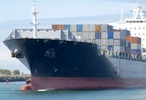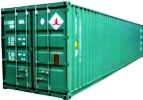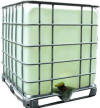| Mubychem Group, established in 1976, is the pioneer manufacturer of Potassium Sodium Tartrate, Pharmaceutical, Fragrance & Flavor chemicals in India. Mubychem Group has several manufacturing facilities spread across Gujarat and Mumbai India and world wide contacts and toll manufacturers. We are exporting globally to countries like USA, Canada, Europe, UAE, South Africa, Tanzania, Kenya, Egypt, Nigeria, Uganda, Turkey, Mexico, Brazil, Chile, Argentina, Dubai etc. |
The participating units have one or more accreditations like FDA - GMP approval; ISO-9001 Certified; "REACH"registered; ISO-22000; Kosher Certified;Halal Certified; HACCP. We offer Pure & IP BP USP FCC Food Grade ACS AR Analytical Reagent Grades of Chemicals | |







Potassium Sodium Tartrate Manufacturers, MSDS Sheet
Potassium Sodium Tartrate USP BP IP ACS Analytical Reagent FCC Food grade Manufacturers
Potassium Sodium Tartrate MSDS Sheet, Sodium Potassium Tartrate Material Safety Data Sheet
1. Product Identification
Synonyms: Rochelle Salt; Seignette Salt; sodium potassium tartrate; 2,3-dihydroxy-[R-(R*,R*)]-butanedioic acid, monopotassium monosodium salt tetrahydrate
CAS No.: 304-59-6 (Anhydrous); 6381-59-5 (Tetrahydrate)
Molecular Weight: 282.22
2. Composition/Information on Ingredients
Ingredient: Potassium Sodium Tartrate or Sodium Potassium Tartrate
CAS No.: 304-59-6
Percent: 99 - 100%
3. Hazards Identification
Potential Acute Health Effects: Potassium Sodium Tartrate Hazardous in case of inhalation. Slightly hazardous in case of skin contact (irritant), of eye contact (irritant), of ingestion.
Potential Chronic Health Effects:
Carcinogenic Effects: Not available.
Mutagenic Effects: Not available.
Teratogenic Effects: Not available.
Developmental Toxicity: Not available.
Potassium Sodium Tartrate is toxic to mucous membranes. Repeated or prolonged exposure to the substance can produce target organs damage.
4. First Aid Measures
Inhalation: If Potassium Sodium Tartrate is inhaled, remove to fresh air. If breathing is difficult, give oxygen. Get medical attention.
Ingestion: If large amounts were swallowed, give water to drink and get medical advice.
Skin Contact: Immediately flush skin with plenty of water for at least 15 minutes. Remove contaminated clothing and shoes. Wash clothing before reuse. Thoroughly clean shoes before reuse. Get medical attention if irritation develops.
Eye Contact: Check for and remove any contact lenses. In case of contact, immediately flush eyes with plenty of water for at least 15 minutes. Get medical attention if irritation occurs.
5. Fire Fighting Measures
Fire: As with most organic solids, fire is possible at elevated temperatures or by contact with an ignition source.
Explosion: Fine dust dispersed in air in sufficient concentrations, and in the presence of an ignition source is a potential dust explosion hazard.
Fire Extinguishing Media: Water spray, dry chemical, alcohol foam, or carbon dioxide.
Special Information: In the event of a fire, wear full protective clothing and NIOSH-approved self-contained breathing apparatus with full face-piece operated in the pressure demand or other positive pressure mode.
6. Accidental Release Measures
Small Spill: Use appropriate tools to put the spilled solid in a convenient waste disposal container. Finish cleaning by spreading water on the contaminated surface and dispose of according to legal requirements.
Large Spill: Use a shovel to put the material into a convenient waste disposal container. Finish cleaning by spreading water on the contaminated surface and allow to drain.
7. Handling and Storage
Keep Potassium Sodium Tartrate in a tightly closed container. Protect from physical damage. Store in a cool, dry, ventilated area away from sources of heat, moisture and incompatibilities. Containers of Potassium Sodium Tartrate may be hazardous when empty since they retain product residues (dust, solids); observe all warnings and precautions listed for the product.
8. Exposure Controls/Personal Protection
Airborne Exposure Limits: None established.
Ventilation System: In general, dilution ventilation is a satisfactory health hazard control for this substance. However, if conditions of use create discomfort to the worker, a local exhaust system should be considered.
Personal Respirators (NIOSH Approved): For conditions of use where exposure to dust or mist is apparent and engineering controls are not feasible, a particulate respirator (NIOSH type N95 or better filters) may be worn. If oil particles (e.g. lubricants, cutting fluids, glycerin, etc.) are present, use a NIOSH type R or P filter. For emergencies or instances where the exposure levels are not known, use a full-face positive-pressure, air-supplied respirator.
Skin Protection: Wear protective gloves and clean body-covering clothing.
Eye Protection: Use chemical safety goggles. Maintain eye wash fountain and quick-drench facilities in work area.
9. Physical and Chemical Properties
Appearance: Potassium Sodium Tartrate is colorless, transparent crystals or white powder.
Odor: Odorless.
Solubility: Soluble in water.
Density: 1.79
pH: 7-8
% Volatiles by volume @ 21C (70F): 0
Boiling Point: 220C (428F) Begins to decompose
Melting Point: 70 - 80C (158 - 176F)
Vapor Density (Air=1): No information found.
10. Stability and Reactivity
Stability: Sodium Potassium Tartrate Stable under ordinary conditions of use and storage.
Hazardous Decomposition Products: Carbon dioxide and carbon monoxide may form when heated to decomposition.
Hazardous Polymerization: Will not occur.
Incompatibilities: Acids, calcium or lead salts, silver nitrate, magnesium sulfate.
Conditions to Avoid: Heat, flames, ignition sources and incompatibles.
11. Toxicological Information
No LD50/LC50 information found relating to normal routes of occupational exposure.
--------\Cancer Lists\------ -----------------------------
---------------------------- ---NTP Carcinogen---
Ingredient ----------------- Known -- Anticipated -- IARC Category
---------------------------- ----- ----------- ----
Potassium Sodium Tartrate -- No ----- No ----------- None
(304-59-6)
12. Ecological Information
Environmental Fate: No information found.
Environmental Toxicity: No information found.
13. Disposal Considerations
Whatever cannot be saved for recovery or recycling should be managed in an appropriate and approved waste disposal facility. Processing, use or contamination of this product may change the waste management options. State and local disposal regulations may differ from federal disposal regulations. Dispose of container and unused Sodium Potassium Tartrate in accordance with federal, state and local requirements.
14. Transport Information
Not regulated.
15. Regulatory Information
--------\Chemical Inventory Status - Part 1\--------------------- Ingredient ------------------------- TSCA EC Japan Australia ------------------------------------ ---- --- ----- --------- Potassium Sodium Tartrate (304-59-6) Yes Yes Yes Yes --------\Chemical Inventory Status - Part 2\--------------------- ------------------------------------------- --Canada-- Ingredient ------------------------- Korea DSL NDSL Phil. ------------------------------------ ----- --- ---- ----- Potassium Sodium Tartrate (304-59-6) Yes Yes No Yes --------\Federal, State & International Regulations - Part 1\---- ------------------------------------ -SARA 302- ------SARA 313------ Ingredient ------------------------- RQ TPQ List Chemical Catg. ------------------------------------ --- ----- ---- -------------- Potassium Sodium Tartrate (304-59-6) No No No No --------\Federal, State & International Regulations - Part 2\---- -------------------------------------------- -RCRA- -TSCA- Ingredient ------------------------- CERCLA 261.33 8(d) ------------------------------------ ------ ------ ------ Potassium Sodium Tartrate (304-59-6) No No No
Chemical Weapons Convention: No; TSCA 12(b): No; CDTA: No
SARA 311/312: Acute: Yes; Chronic: No; Fire: No; Pressure: No
Reactivity: No (Pure / Solid)
Australian Hazchem Code: None allocated.
Poison Schedule: None allocated.
US Federal and State Regulations: No products were found.
OSHA: Hazardous by definition of Hazard Communication Standard (29 CFR 1910.1200).
WHMIS (Canada): Not controlled under WHMIS (Canada).
DSCL (EEC):
This product is not classified according to the EU regulations. S22- Do not breathe dust. S24/25- Avoid contact with skin and eyes.
HMIS (U.S.A.):
Health Hazard: 2
Fire Hazard: 1
Reactivity: 0
Personal Protection: E
National Fire Protection Association (U.S.A.):
Health: 2
Flammability: 1
Reactivity: 0
Specific hazard:
Protective Equipment:
Gloves. Lab coat. Dust respirator. Be sure to use an approved/certified respirator or equivalent. Safety glasses.
16. Other Information
Disclaimer:
******************************
Our company provides this Potassium Sodium Tartrate MSDS information sheet contained herein in good faith but makes no representation as to its comprehensiveness or accuracy. This Sodium Potassium Tartrate MSDS sheet is intended only as a guide to the appropriate precautionary handling of the material by a properly trained person using this product. Individuals receiving the information must exercise their independent judgment in determining its appropriateness for a particular purpose.
******************************
Sodium Potassium Tartrate Manufacturers
Potassium Sodium Tartrate Manufacturers:
MUBYCHEM GROUP
CHINCHBUNDER, MUMBAI 400009, INDIA
TEL: (OFFICE) 91-22-23774610, 91-22- 23723564. 91-22-23728264
e-mail: anmol@pcmenergy.com

Copyright and Usual Disclaimer is Applicable.
Global or International Potassium Sodium Tartrate Suppliers, Exporters, Importers, Manufacturers
If I give you “My Word” Nobody can undo it.
If I sign an “Agreement” my Lawyer will undo it
Perfection is made up of small thing but it is not small.

